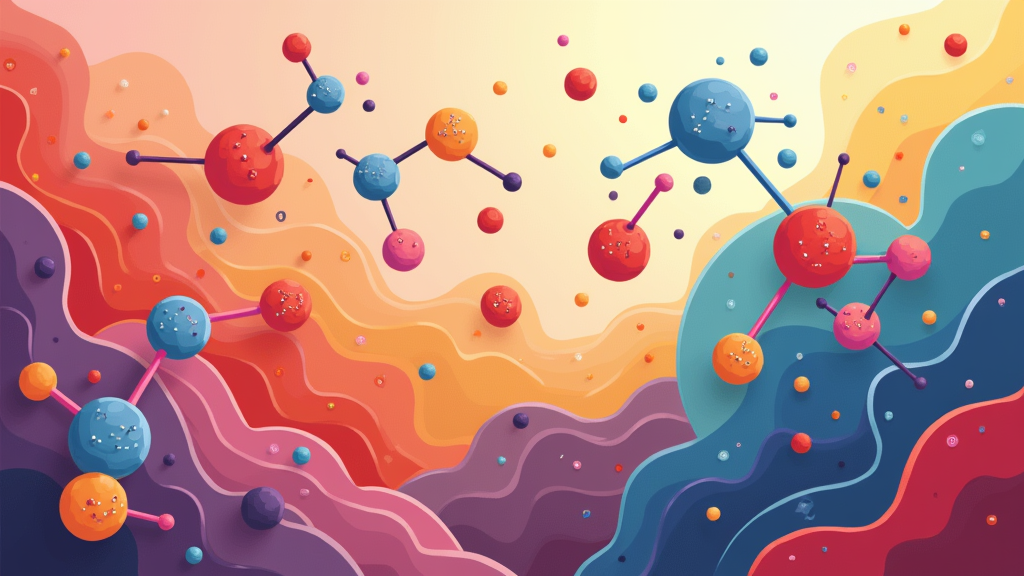Hormones are chemical messengers produced by the endocrine system, regulating metabolism, mood, and growth. Balanced hormones ensure smooth bodily functions, but factors like processed foods, stress, and poor sleep can cause imbalances, leading to fatigue, weight fluctuations, and mood swings.
Scientific research confirms that hormones impact nearly every bodily function, including emotional and mental health. For example, cortisol affects stress and sleep, while insulin regulates blood sugar. Recognizing these connections encourages better lifestyle and nutrition choices.

How Nutrition Influences Hormones
Food provides the essential nutrients that regulate hormone production. A well-balanced diet of whole foods helps maintain hormonal stability. Key nutrients include:
- Omega-3 Fatty Acids: Reduce inflammation and support cell function (found in fish, flaxseeds, and walnuts).
- Fiber: Regulates insulin and estrogen (present in whole grains, fruits, and vegetables).
- Antioxidants: Protect cells from oxidative stress (found in berries and green tea).
- Protein: Supports hormone synthesis and repair (from lean meats, legumes, and dairy).
- Iodine, Selenium, and Zinc: Essential for thyroid health and overall endocrine function.
Prioritizing nutrient-dense foods fosters hormonal balance and overall wellness.
Practical Steps to Balance Hormones with Nutrition
Making small dietary adjustments can improve energy, mood, and metabolism:
- Assess Your Diet: Keep a food journal to identify patterns affecting your energy and mood.
- Include Healthy Fats: Avocados, nuts, and olive oil support hormone production.
- Boost Fiber Intake: Whole grains, vegetables, and fruits help regulate blood sugar.
- Limit Processed Foods: Refined sugars and processed snacks disrupt insulin levels.
- Stay Hydrated: Proper hydration supports metabolic function and hormone balance.
Gradual changes lead to long-term improvements, and mindful eating practices further stabilize metabolic rhythms.
Common Hormonal Challenges and Nutritional Solutions
- Insulin Imbalances: A diet high in refined sugars causes energy crashes. Opting for whole grains and low-glycemic foods promotes stable blood sugar levels.
- Thyroid Dysfunction: Low iodine and selenium intake affects metabolism. Sea vegetables, nuts, and lean proteins help support thyroid function.
- Chronic Inflammation: Processed foods exacerbate inflammation, affecting hormone production. Anti-inflammatory foods like leafy greens and berries help restore balance.
- High Cortisol Levels: Stress disrupts hormones. Magnesium- and B-vitamin-rich foods (such as legumes and whole grains) support adrenal function.
Addressing these challenges with proper nutrition helps optimize hormonal balance.
Advanced Strategies for Hormone Health
- Diverse Phytonutrient Intake: A variety of colorful fruits and vegetables support multiple hormonal pathways.
- Intermittent Fasting: Can help regulate insulin and improve metabolic flexibility when introduced gradually.
- Mindful Eating: Slowing down meals prevents overeating, stabilizing blood sugar and stress hormones.
- Exercise & Sleep Optimization: Regular activity and sufficient rest enhance hormone function.
Combining these strategies with a balanced diet strengthens the endocrine system and improves overall well-being.
Frequently Asked Questions
How does nutrition impact hormones?
A whole-food diet provides essential building blocks for hormone production and regulation.
Which nutrients are key for hormonal health?
Omega-3s, fiber, antioxidants, iodine, selenium, and zinc all play significant roles in hormone balance.
Can diet influence thyroid function or insulin resistance?
Yes, adjusting nutrient intake supports thyroid health and insulin sensitivity.
Is there a universal diet for hormonal balance?
No, but personalized adjustments based on individual needs optimize hormonal function.
Conclusion
Hormones and nutrition are deeply interconnected, shaping energy, mood, and health. Thoughtful dietary choices—rich in essential nutrients—help maintain hormonal balance. While achieving optimal hormone health takes time, small, consistent changes in diet and lifestyle create lasting improvements.
Tracking food intake and monitoring energy and mood can reveal valuable insights. The journey toward better hormonal balance is about embracing nourishing foods, maintaining an active lifestyle, and prioritizing restful sleep.
By making intentional choices, you empower your body to function optimally, leading to a more energized and balanced life.


